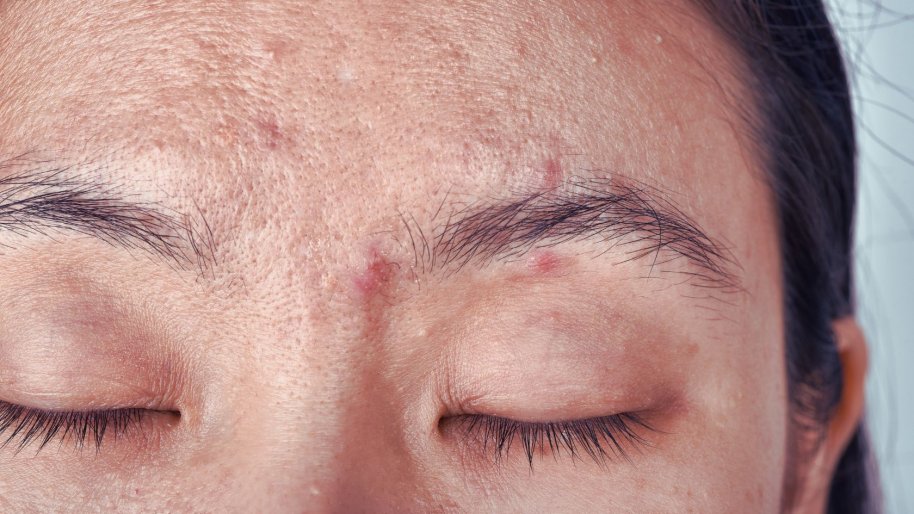Contrary to popular belief, acne is not just present in teenagers. In fact, adult acne is quite rampant as acne affects people of all ages, not only those in their adolescence.
Acne causes and treatments are completely the same in teens and adults. However, adult acne has its own distinct traits which are worth looking into.
Read on as we discuss and understand adult acne, as well as how to combat it today.
How Does Adult Acne Develop?
Adult acne is acne that develops after the age of 25. Acne in adults is largely caused by the same factors that produce acne in teens. Acne is caused by an overabundance of oil, “sticky” skin cells, bacteria, and inflammation.
When it comes to adult acne, its causes are a range of many different reasons. For one, hormones, stress, and women’s menstrual cycles all have an indirect impact on oil production. Hair products, skin dirt buildup, and makeup can all clog pores.
Beyond that, even one’s diet can influence the inflammation that occurs in the body. Three probable acne-causing medications are also found in lithium, corticosteroids, and anabolic steroids.
Unfortunately, acne could be a sign of a more serious underlying problem. Hair loss, excessive hair growth, unusual menstrual cycles, rapid weight gain or loss, or the abrupt start of acne in the absence of a past history of acne, for example, may be symptoms of a problem such as polycystic ovarian syndrome or other endocrine conditions. Polycystic ovarian syndrome, as well as other endocrine diseases, can induce these symptoms.
Preventing Adult Acne: The 4 Ways to Do It
Acne, like most other elements of life, is highly unexpected. Nonetheless, we strongly advocate the following acne-prevention strategies:
- Never sleep with your makeup on.
- Look for the phrases “non-comedogenic,” “oil-free,” and “won’t clog pores” on the labels of cosmetics and skincare products. These terms refer to products that will not clog your pores.
- Applying oils to your face and hair should be avoided.
- Picking at acne lesions, which can cause post-inflammatory pigment changes, or picking at acne lesions themselves, can cause acne patches. If you want to keep your skin from changing colour, always apply sunscreen with an SPF of 30 or higher.
In addition, certain diets may reduce the risk of acne. 14 observational studies involving 80,000 children, adolescents, and young adults discovered a link between dairy products and acne. High glycemic index diets have been proven to boost blood sugar levels, which has been linked to acne.
However, you should avoid nutrition and skin myths. However, research into the relationship between nutrition and acne is just getting started. Furthermore, physicians want evidence-based knowledge that is accurate according to scientific standards. In the future, one’s diet may have an effect on acne.
Finding the Right Adult Acne Treatments for You
Acne treatments vary depending on the type and severity of the acne. Topical tretinoin can help prevent pore clogging caused by slower skin cell turnover, in addition to minimising the appearance of fine lines and wrinkles and improving overall complexion.
Isotretinoin, administered orally, is the medication that comes closest to being a “cure” for severe acne. Because isotretinoin can harm growing foetuses, pregnant women who are considering using it should proceed with extreme caution.
In addition, Spironolactone, which acts by inhibiting testosterone production, is an effective treatment for hormonal acne that may arise during a woman’s period. Oral contraceptives can change hormones that lead to acne.
Acne patients demand sensitive skin care. So, choose acne-friendly products that are gentle and non-irritating, and avoid harsher choices. Acne scarring and discolouration can worsen if the areas are plucked at or pinched.
Moreover, in-office photodynamic treatment can produce positive outcomes. Chemical peels performed in an office environment can treat acne and post-inflammatory pigment changes.
Conclusion
While acne may be the skin’s natural response to hormonal changes, sleep trouble, unhealthy diets, and more, we must make it a point not to let it develop further.
As such, it is crucial to work with trusted skin specialists who can help you get a comprehensive skin examination to uncover the underlying causes of skin concerns. This way, you can get a personalised treatment plan that will deliver results.
Are you in need of acne scar treatments? Visible Changes is here to help you address skin concerns, treat them, and give you desirable results. Contact us today!
Visible Changes offer a great range of skin care treatments in Adelaide.

